For 17 years, survivors of political and sexual violence in Kenya have waited for justice. Now they speak out against silence, delay, and neglect.
Seventeen years after Kenya’s 2007-08 post-election crisis, survivors of sexual violence are still waiting for justice. Despite a High Court ruling awarding compensation and a government promise of a Ksh. 10 billion Restorative Justice Fund, not a single cent has reached the victims. On April 11, at the Kenya Human Rights Commission (KHRC) offices in Nairobi, survivors and human rights activists—including Utu Wetu Trust Co-founder Tina Alai—gathered to condemn yet another delay by the Court of Appeal in a case that has come to symbolize systemic neglect and broken promises.
As the morning sun strained through the clouds above Nairobi, a familiar ache settled over the survivors once more. In a packed room at the Kenya Human Rights Commission (KHRC) offices, Utu Wetu Trust Co-founder Tina Alai’s voice rang with clarity, yet her eyes betrayed a long-harbored sorrow. The Court of Appeal had once again postponed justice.
For the eight survivors of the 2007-2008 post-election sexual violence (six women and two men) this delay wasn’t just a legal technicality. It was a wound reopened, a fresh scar on an old soul. The case, Constitutional Petition 122 of 2013, had already endured 17 slow, agonizing years in Kenya’s judicial corridors. Their plea? Recognition. Reparation. A simple acknowledgment of the pain etched into their bodies and histories.
In 2020, the High Court awarded Ksh. 4 million to four petitioners and condemned the State’s failure to investigate and prosecute the violations. But today, in 2025, not a single coin has been paid. A Certificate of Costs was filed in 2023, but the Ministry of Interior remains unmoved, silent, distant. Survivors are left begging for what is already theirs by law.
How does a nation forget its wounded?
How can justice be so blind it cannot hear the cries echoing through Nyayo House’s haunted halls?
How long must victims knock on deaf doors before the State listens?
The Utu Wetu Trust, alongside a coalition of rights organizations, stood shoulder to shoulder with survivors at the press conference, naming the injustice for what it is: systemic neglect. Since the announcement of the Ksh. 10 billion Restorative Justice Fund in 2015 by then-President Uhuru Kenyatta, no single survivor has seen a cent. Draft policies languish in the Attorney General’s office like old files gathering dust. Meanwhile, credible reports suggest that Ksh. 3.1 billion may have already been spent—silently, secretly, without public accounting.
What is justice without transparency?
What is a promise when it becomes a lie told in whispers?
This is not just a matter of unpaid compensation. It is the soul of a nation at stake. Survivors have waited through shifting administrations, false dawns, and televised platitudes. Their torment is the tip of a much deeper iceberg—the same one the Waki Commission warned about in 2008. Thousands of other cases lie buried beneath silence.
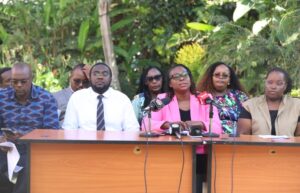
Utu Wetu Trust Co-founder Tina Alai speaking during press conference on post-election violence survivors’ justice delay at KHRC offices.
Tina Alai, her voice steady yet heavy, reminded the nation: “These survivors do not speak for themselves alone. They are the voice of a thousand others, still waiting, still hoping.”
And still, the State pleads budgetary constraints, while officials globe-trot on taxpayer coin, while political campaigns flood the airwaves with gold-dusted slogans. Yet when it comes to the broken, the raped, the disappeared, suddenly the coffers are dry.
Where is the will to heal?
Where is the soul of a country that forgets its wounded and glorifies its wounds?
Justice delayed is justice denied. But in Kenya, delay is not a flaw. It is a pattern—repeated in the Baby Pendo case, repeated in every election cycle marred by violence, repeated until it becomes the rhythm of a nation dancing on its own shame.
The survivors stand still. Not asking for miracles. Only what is theirs: recognition, restitution, and a quiet dignity restored.
Seventeen years later, survivors of Kenya’s 2007-08 post-election violence still await justice as the Court of Appeal delays their compensation.
But still they wait.





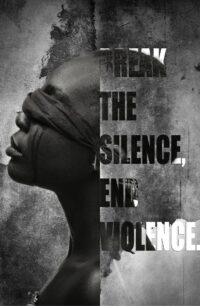


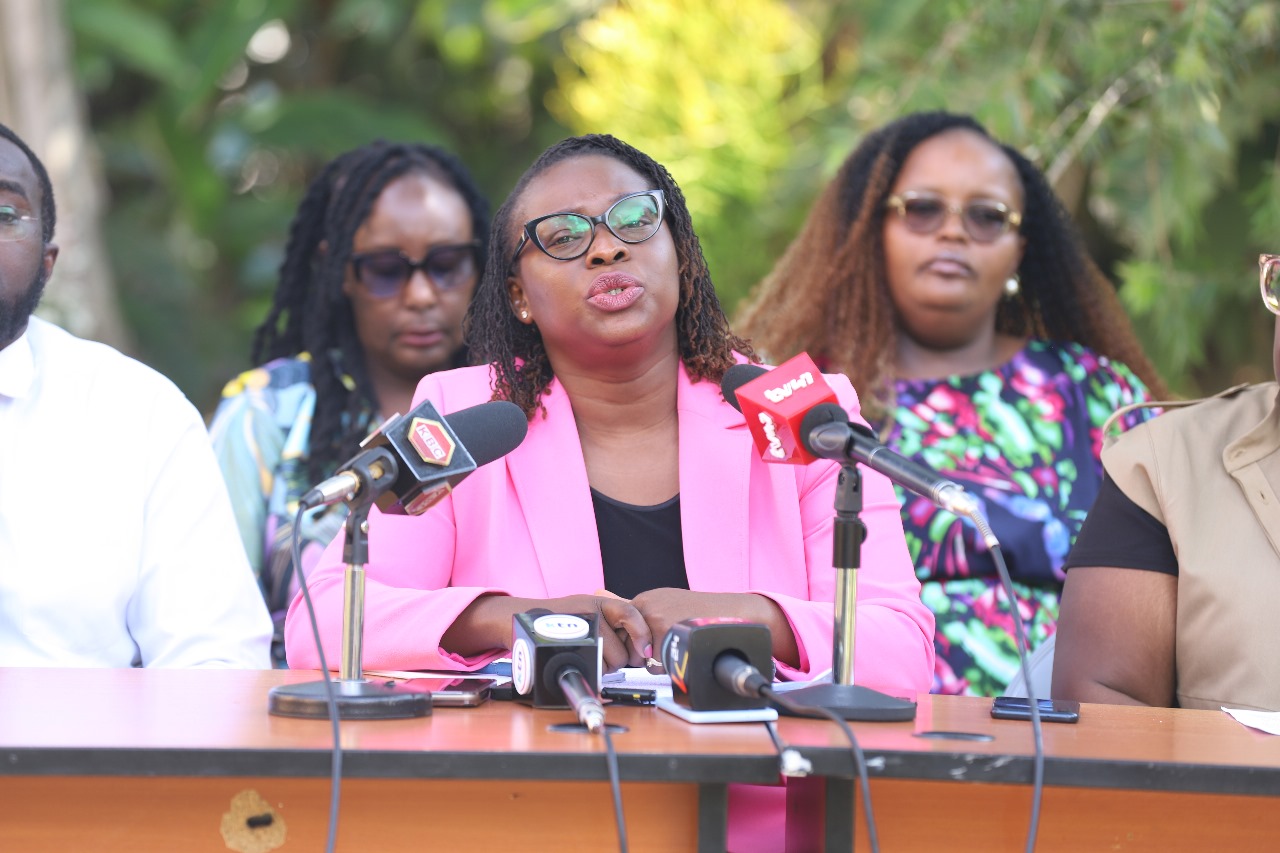


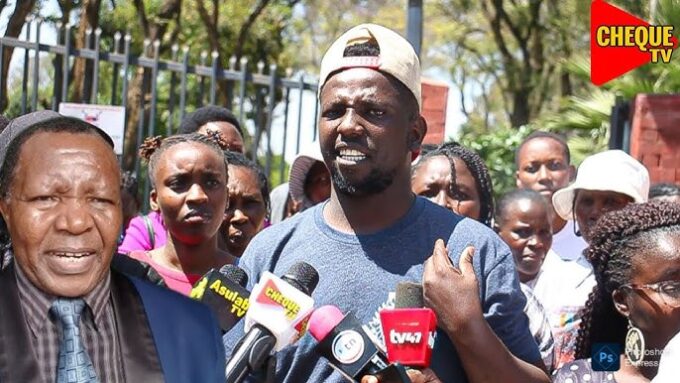
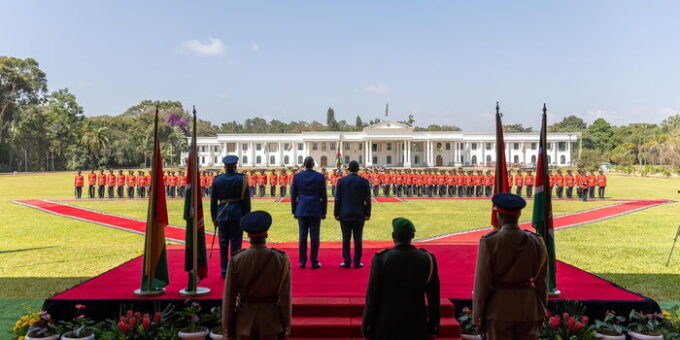
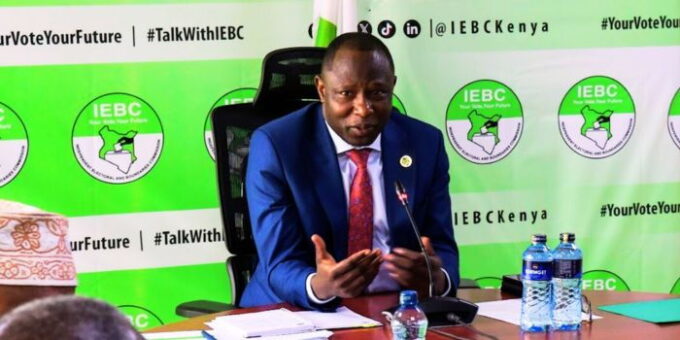

Leave a comment